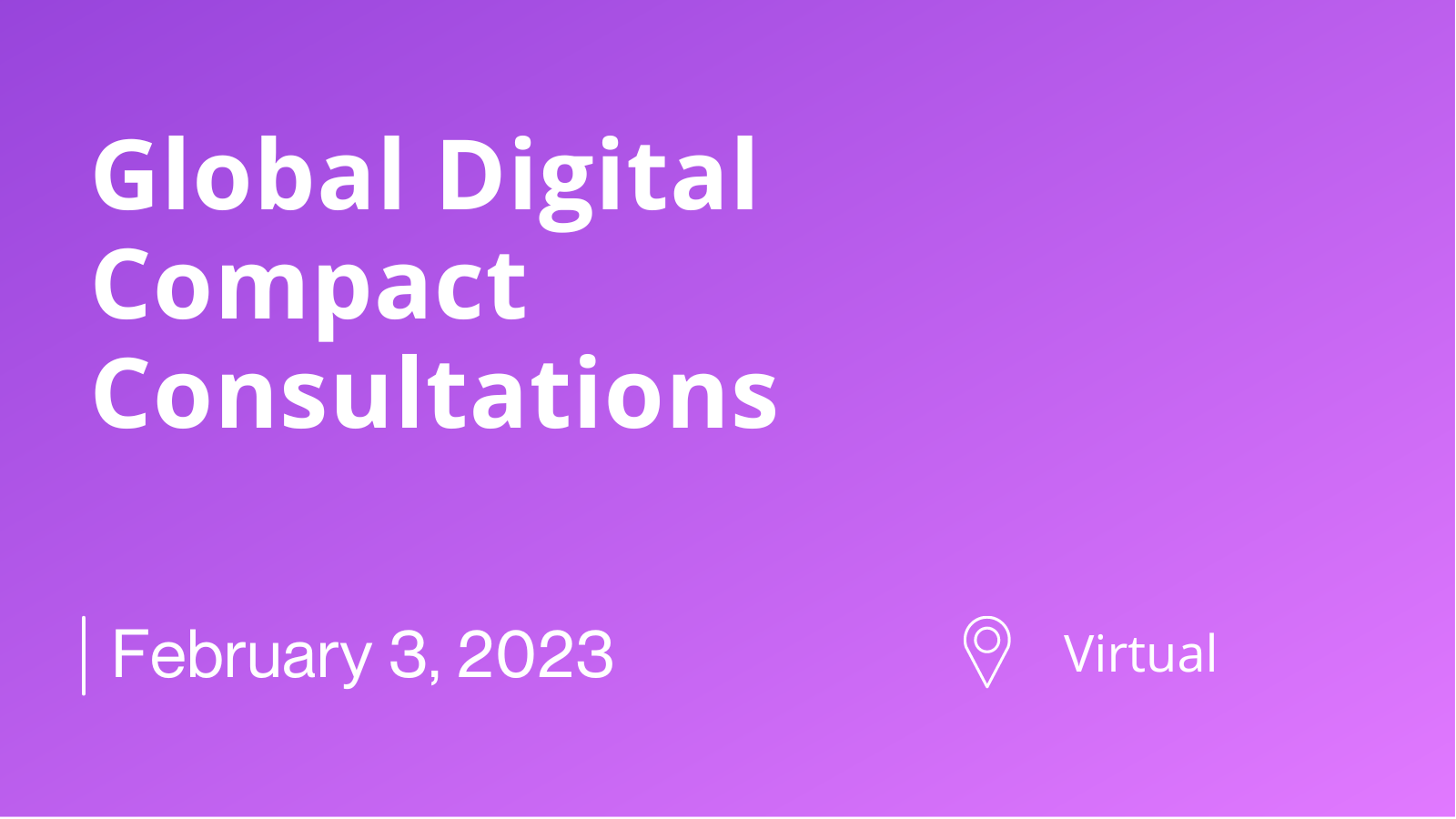
Following the political declaration adopted at the occasion of the United Nations’ 75th anniversary in September 2020, the Secretary-General in September 2021 released his report Our Common Agenda. The Common Agenda proposes a Global Digital Compact to be agreed at the Summit of the Future in September 2024 through a technology track involving all stakeholders: governments, the United Nations system, the private sector (including tech companies), civil society, grass-roots organizations, academia, and individuals, including youth.
On February 3 2023 the Office of the Secretary General held a consultation with civil society on the Global Digital Compact which is expected to “outline shared principles for an open, free, and secure digital future for all”.
Carolina Rossini, Director for Research and Partnerships at the Datasphere Initiative provided an intervention emphasizing the pressing need for a different and innovative approach to digital policymaking addressing data governance.
“Actors are confronted with the difficulty of setting the right balance between two opposing risks: on the one hand, excessively limiting the sharing of data; and on the other, insufficiently addressing legitimate concerns, and hence eroding trust, security and economic and social value.” said Ms Rossini
Noting the concept of the Datasphere as a new way to guide thinking on the presence of data across societies, Ms Rossini encouraged the adoption of a systems approach to data governance guided by data responsibility and accountability to build a more equitable and inclusive digital society by fostering multistakeholder cooperation.

Subscribe to the Datasphere Pulse for updates on data governance news and activities.
The Datasphere Initiative is a global network of stakeholders fostering a holistic and innovative approach to data governance to build agile frameworks to responsibly unlock the value of data for all.
@2024. Datasphere Initiative. All rights reserved
Privacy Policy